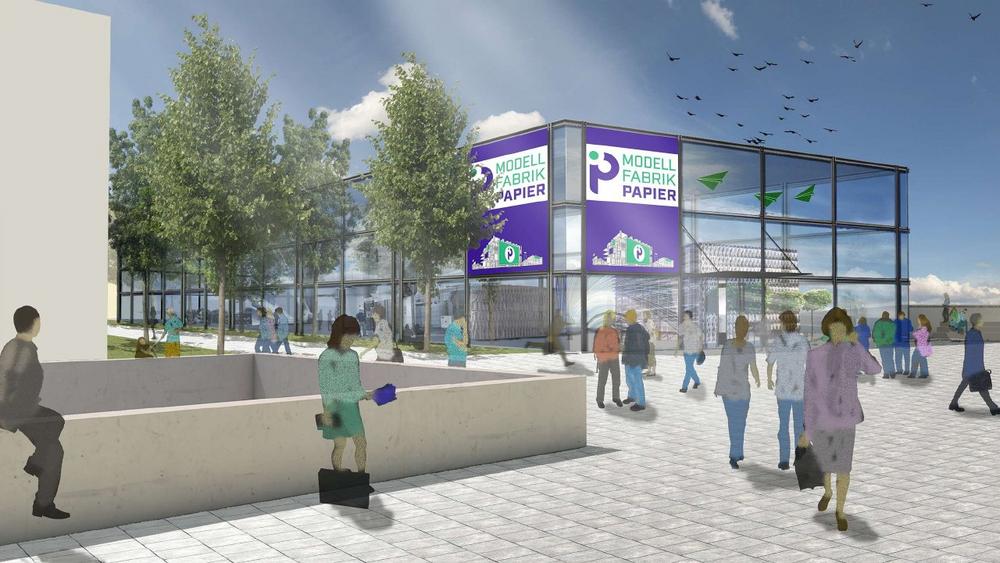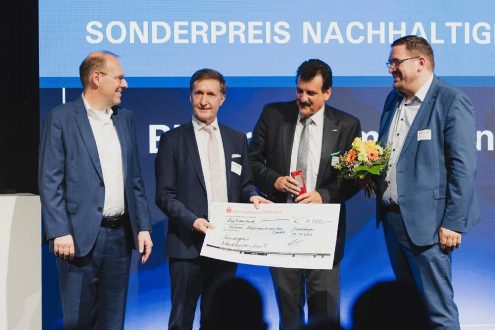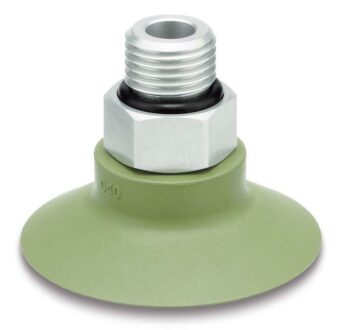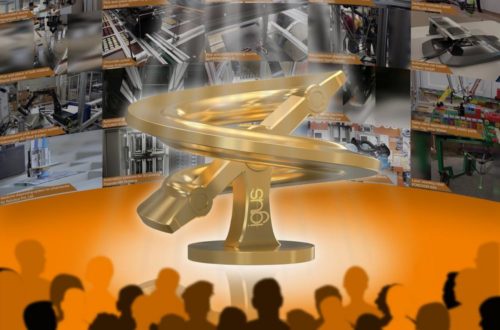
Model Paper Factory: „The vision of climate-neutral paper production“
Peter Bekaert, Managing Director of Modellfabrik Papier gGmbH, discusses in an interview the strategies and concrete approaches for entering the bioeconomy.
Which technologies do you use to support the transformation towards a circular bioeconomy?
You could say that we are already part of the bioeconomy today. We see potential for the paper industry in terms of sustainability and bio-based products, especially in the topic of CO2 savings, tapping new renewable or bio-based raw materials and minimising water consumption. We have recognised that the best way to tackle this is together with other stakeholders and to create the basis for new ground-breaking technologies in a pre-competitive manner. The establishment of the Model Paper Factory by 15 companies from the paper and paper supply industry in December 2020 will create a non-profit, pre-competitive research infrastructure. It gives the paper industry the opportunity to work disruptively on the vision of climate-neutral paper production within the framework of an open innovation network. The Model Factory Paper has set itself the goal of reducing 80 percent of the specific energy consumption in paper production and thus achieving climate-neutral paper production by 2045. Starting points arise in all phases of paper production: from raw materials and additives to manufacturing processes and the reuse of residual materials and energy.
Sector coupling in energy supply and in the recycling of residual materials as well as the availability of raw materials play an important role. With a recycling rate of 79 percent, paper production is already a well-functioning circular economy.
But in order to achieve the goals set in terms of sustainability, fundamentally innovative processes are needed. Appropriate technologies are being researched in the Model Paper Factory. Approaches such as the concept of water-free paper production are emerging.
In your opinion, what are currently the technical hurdles to more efficient, resource-saving processing in your segment?
In our research, we see a basic understanding of the interactions between fibres on the one hand and between fibres and other media on the other as elementary. We need to generate this understanding in order to develop fundamental new manufacturing methods in the future. At the same time, we are developing new drying processes that require significantly less energy to remove the water from the paper web. The expected higher competition for wood as a raw material and the development of other raw materials are also taken into account. At the same time, it is important to avoid competing with other industries, such as the food industry, in terms of land use and at the same time maintain the high recycling rate of 79 per cent.
What are the biggest challenges for your industrial customers and how can mechanical engineering help?
The greatest challenge will be the political and social pressure to develop CO2 neutral and even more environmentally friendly products. Both for the development of technology carriers for research and for new paper production processes, the Model Factory Paper needs support from the mechanical engineering industry. We already have three partners from this industry in our consortium of shareholders and look forward to further interest from the mechanical and plant engineering sector.
Are the challenges in your industry regionally different or globally the same?
There are clear regional differences in our industry. These are primarily due to the availability and use of either virgin fibres or recycled secondary fibres. With the high recycling rate of paper, German paper manufacturers have partly different interests than the Northern European paper manufacturers with a high availability of virgin fibres. The regional availability of energy for the energy-intensive paper industry also plays a central role. Otherwise, all companies in the industry are affected by the same external factors such as rising energy prices and national as well as international legislation, for example with regard to CO2 emissions. Therefore, the developments of the Model Paper Factory are regionally anchored in the Rhenish Territory area and will also have a radiating effect on a national and international level.
The leading industrial nations want to achieve climate neutrality by the middle of the century. Do we need political support for the bioeconomy? If so, what do you specifically expect from politics?
Innovations and fundamentally sustainable research need strong political support. The signals from politics are positive. We need to create an unbureaucratic and pragmatic access to support to ensure the necessary speed of innovation and investment. We need maximum reliability with as much flexibility as possible.
The VDMA Printing and Paper Technology Association is the mouthpiece of around 170 manufacturers of equipment and systems for the printing and print processing, paper manufacturing and converting, and auxiliary materials and equipment sectors from Europe. It thus represents around 90 per cent of the industry. The trade association offers its members services, for example on topics such as trade fairs, public relations, technology and research
VDMA, Verband Deutscher Maschinen- und Anlagenbau e.V.
Lyoner Str. 18
60528 Frankfurt
Telefon: +49 (69) 6603-0
Telefax: +49 (69) 6603-1511
http://www.vdma.org/
Leiter Kommunikation und Pressesprecher
Telefon: +49 (69) 6603-1922
Fax: +49 (69) 6603-2922
E-Mail: holger.paul@vdma.org
![]()



